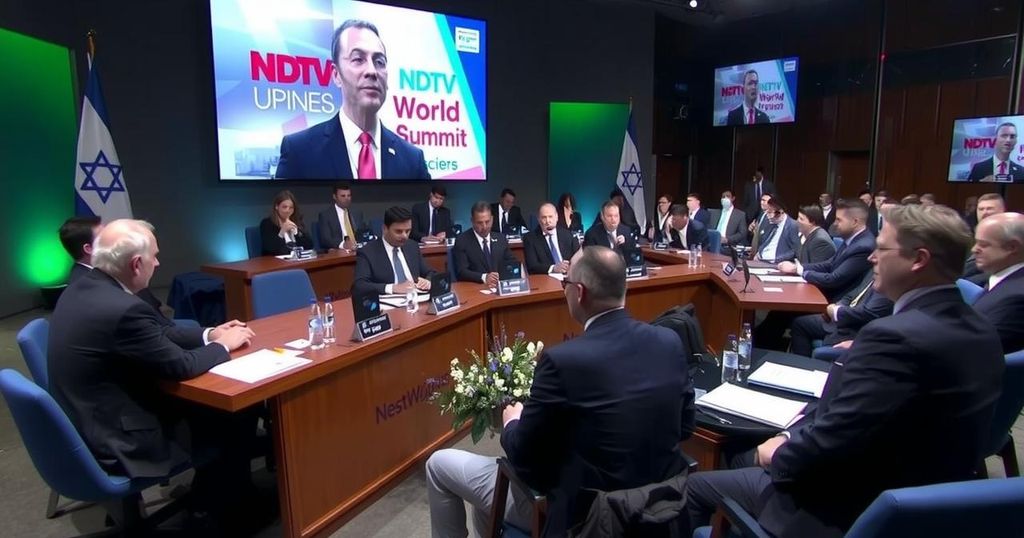Israeli Ambassador: ‘Right and Duty to Retaliate’ Following Iranian Missile Attacks

Israeli Ambassador to India, Reuven Azar, asserted Israel’s right and duty to retaliate against Iran following a missile attack. He emphasized the necessity for Israel to defend itself and outlined the nation’s efforts to enhance regional stability through various peace agreements. Azar also highlighted India’s growing influence in West Asia and its potential role in fortifying ties for economic and diplomatic cooperation.
During the NDTV World Summit, Israeli Ambassador to India, Reuven Azar, asserted Israel’s right and obligation to retaliate following Iran’s missile attack on the nation on October 1, where Iran launched at least 180 missiles. Ambassador Azar emphasized Israel’s commitment to regional peace and stability, underlining that it cannot tolerate an environment where Iran possesses the freedom to launch attacks without consequence. He remarked that Israel is prepared to respond regardless of impending US elections scheduled for November 5, stating, “The US elections are not a factor. What is a factor is that we have not only a right but a duty to retaliate. Imagine a situation in which a country like Iran is capable of threatening any country in the region without any repercussions… this is completely unacceptable.” Furthermore, the ambassador articulated Israel’s intention to cultivate stability through existing peace agreements and recent diplomatic engagements. He noted Israel’s accomplishments in mitigating threats from Hamas, referencing the destruction of missile factories and stringent border controls intended to limit rearmament. Although some hostages from a prior attack remain unaccounted for, he assured that Israel is exploring avenues to ensure aid reaches the residents of Gaza without benefiting Hamas. On the role of India within West Asia, Ambassador Azar highlighted India’s burgeoning economic influence and its potential to contribute significantly to the region’s future, correlating its growth trajectory with increased global connectivity. He concluded that as infrastructure develops, India’s importance in West Asia will continue to expand, fostering stronger ties between Israel and India in various sectors, especially in manufacturing and investment. In summary, Israel maintains a resolute stance on responding to Iranian aggression, aims to stabilize regional relations, and anticipates an enhanced role for India in contributing to peace and economic growth in the Middle East.
The recent missile attacks originating from Iran have heightened tensions between Iran and Israel, with Israel’s leadership expressing a zero-tolerance policy towards such aggressive actions. The context includes ongoing conflicts involving Hamas and Hezbollah, as well as the diplomatic landscape in West Asia where countries like India are emerging as significant actors. The Israeli government, under Ambassador Reuven Azar, seeks to fortify its defense mechanisms while simultaneously pursuing peace agreements with neighboring nations, reflecting a multifaceted approach to regional security and diplomacy. The remarks also underscore the evolving dynamics of global power, with India positioned as a crucial contributor to the geopolitical landscape amidst its own rapid economic growth.
Ambassador Reuven Azar’s statements at the NDTV World Summit illuminate Israel’s stance on retaliation against Iranian aggression, showcasing its defense capabilities and division of responsibilities in maintaining regional stability. The emphasis on India’s rising significance suggests a shift in strategic alliances and economic partnerships in West Asia, highlighting India’s prospective role in shaping future diplomatic and commercial engagements. Israel’s focus on maintaining security while promoting peace initiatives illustrates a calculated approach in its complex geopolitical environment.
Original Source: www.ndtv.com








